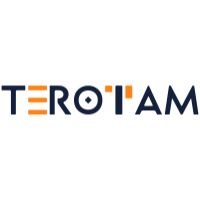Facility management plays a crucial role in ensuring the smooth operation and maintenance of physical assets within an organization. In today's technologically advanced era, CMMS (Computerized Maintenance Management System) solutions have become an essential tool for effective facility management. In this blog post, we will delve into the various functions of facility management and explore how CMMS solutions streamline operations, improve asset performance, and optimize maintenance practices. From maintenance planning to space management, understanding the key Functions of Facility Management and harnessing the power of CMMS software can drive efficiency and enhance the overall productivity of any organization.

Maintenance Planning and Scheduling
One of the primary functions of facility management is maintenance planning and scheduling. This involves creating preventive maintenance programs, setting maintenance intervals, and ensuring timely inspections and repairs. CMMS solutions play a vital role in this function by automating work order generation, scheduling maintenance tasks, and tracking their completion. By utilizing CMMS software, facility managers can optimize maintenance schedules, reduce equipment downtime, and enhance asset performance.
Asset Management
Proper asset management is crucial for effective facility management. This function involves tracking and monitoring all physical asset information, organizations can optimize asset utilization, minimize breakdowns, and extend asset lifecycles.
assets, including equipment, machinery, and infrastructure. CMMS solutions provide a centralized platform for asset management, allowing facility managers to maintain accurate asset records, track asset history, and plan for equipment replacements or upgrades.
Space Management
Efficient space management is another vital function of facility management. It entails optimizing the use of available space, ensuring compliance with safety regulations, and facilitating workspace allocation. CMMS solutions offer features such as floor plan management, occupancy tracking, and resource reservation, enabling facility managers to effectively allocate and utilize space. By leveraging CMMS software, organizations can maximize space utilization, improve workflow efficiency, and enhance employee productivity.
Vendor and Contract Management
Facility managers are responsible for managing vendor relationships and ensuring compliance with service contracts. This function involves selecting and contracting external vendors for maintenance and repair services, tracking contract expiration dates, and managing service level agreements. CMMS solutions provide a centralized database for vendor information, contract documentation, and performance tracking. By utilizing CMMS software, facility managers can streamline vendor management processes, track service delivery, and ensure adherence to contract terms.
Work Order Management
Efficient work order management is essential for timely and effective maintenance execution. Facility managers are responsible for creating, assigning, and tracking work orders for various maintenance tasks. CMMS solutions streamline work order management by automating work order generation, facilitating task assignment, and tracking work order progress. With CMMS software, facility managers can ensure that work orders are completed on time, monitor technician performance, and maintain a comprehensive maintenance history.
Compliance and Regulatory Requirements
Facility managers must comply with various regulatory standards and ensure the safety and security of the facility. This function involves monitoring and adhering to regulatory requirements, conducting safety inspections, and implementing necessary measures. CMMS solutions assist in compliance management by providing tools for documenting inspections, tracking compliance tasks, and generating compliance reports. By utilizing CMMS software, facility managers can streamline compliance processes, ensure regulatory adherence, and maintain a safe working environment.
Reporting and Analytics
Effective facility management requires accurate reporting and data-driven decision-making. Facility managers need to analyze maintenance data, track key performance indicators, and generate reports for stakeholders. CMMS solutions offer robust reporting and analytics capabilities, allowing facility managers to access real-time data, generate performance reports, and gain actionable insights. By harnessing the power of CMMS software, facility managers can make informed decisions, identify areas for improvement, and optimize maintenance strategies.
Integration and Collaboration
Integration with other business systems and collaboration among various stakeholders are crucial for efficient facility management. CMMS solutions offer integration capabilities with other software systems such as ERP (Enterprise Resource Planning) and EAM (Enterprise Asset Management), enabling seamless data exchange and cross-functional collaboration. By leveraging CMMS software, facility managers can ensure data integrity, streamline communication, and foster collaboration between maintenance teams, finance departments, and other key stakeholders.
Conclusion:
Facility management encompasses a wide range of functions, from maintenance planning and asset management to space allocation and compliance. CMMS solutions have emerged as a game-changer in the field, empowering organizations with the tools and capabilities to streamline operations, improve asset performance, and optimize maintenance practices. By embracing CMMS software, businesses in India can enhance their facility management processes, drive efficiency, and achieve operational excellence.

